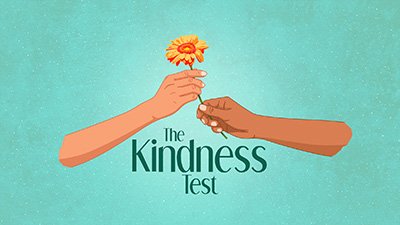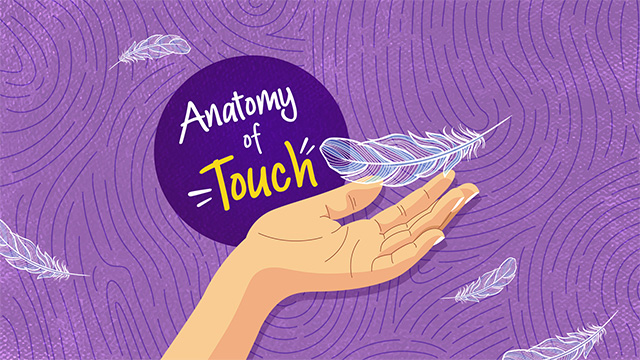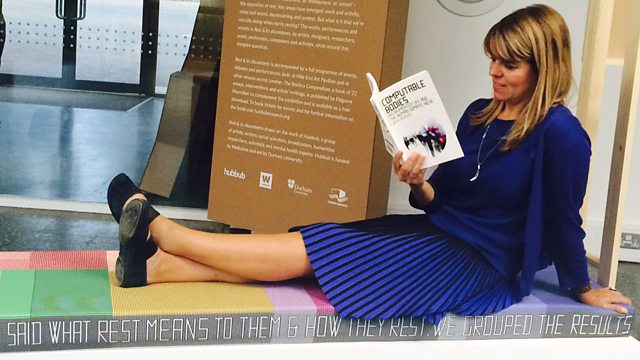Psychological Research
Claudia has been one of the pioneers of large scale research with the media. Using her background in psychology and her extensive media experience, she collaborates with academics and the media on research where access to a big audience means that large numbers of people can take part. Claudia ensures that the research is both engaging for the audience and scientifically useful for the academics. She has worked on three big studies, and has been consulted by researchers in other countries wanting to embark on similar research, including a team at the University of Copenhagen.
Psychological Research
Claudia has been one of the pioneers of large scale research with the media. Using her background in psychology and her extensive media experience, she collaborates with academics and the media on research where access to a big audience means that large numbers of people can take part. Claudia ensures that the research is both engaging for the audience and scientifically useful for the academics. She has worked on three big studies, and has been consulted by researchers in other countries wanting to embark on similar research, including a team at the University of Copenhagen.

The Kindness Test
The Kindness Test is the world’s largest public science project on the topic of kindness.
Over 60,000 people from 144 countries chose to take complete an online questionnaire developed by a team at the University of Sussex, led by Professor Robin Banerjee, Head of the School of Psychology.
The results were announced on BBC Radio 4 in April 2022 and several papers are currently in preparation for submission to journals.

The Touch Test
With the pandemic, the topic of interpersonal touch has taken on a new resonance.
At the start of 2020 almost 40,000 people chose to participate in The Touch Test, an online study commissioned by the Wellcome Collection.
The Touch Test was devised and analysed by a team led by Prof Michael Banissy from Goldsmiths University of London, which included Dr Natalie Bowling from the University of Greenwich, Aikaterini Vafeiadou from Goldsmiths University and Prof Katerina Fotopoulou from UCL.
Several papers are currently under consideration by scientific journals.

The BBC Loneliness Experiment
In 2018, 55,000 people from around the world chose to take part in the BBC Loneliness Experiment, making it the world’s largest ever study on loneliness.
The team was led by Professor Pamela Qualter from the University of Manchester, and the chief collaborators were Professor Manuela Barreto from Exeter University and Professor Christina Victor from Brunel University.
The study was funded by the Wellcome Trust. Several papers on the research have been published in scientific journals.

The Rest Test
The Rest Test, conducted in 2016, is the world’s largest ever study on rest. It was launched on All in the Mind on BBC Radio 4, in collaboration with Wellcome Collection, Hubbub and Durham University.
Claudia was Associate Director of Hubbub, the first holders of the Wellcome Collection’s £1 million Hub grant, where a group of interdisciplinary researchers was in residence on the top floor of the Wellcome Collection for almost two years, investigating the topic of rest.
The research team for the Rest Test was led by Professor Felicity Callard and the chief collaborators were Charles Fernyhough, Ben Alderson-Day, Giulia Poerio and Gemma Lewis. With input from the wider group of collaborators at Hubbub, they developed a questionnaire asking people what rest meant to them, how they rested and whether they would like more rest. A paper is currently in preparation for submission to a scientific journal.

The Kindness Test
The Kindness Test is the world’s largest public science project on the topic of kindness.
Over 60,000 people from 144 countries chose to take complete an online questionnaire developed by a team at the University of Sussex, led by Professor Robin Banerjee, Head of the School of Psychology.
The results were announced on BBC Radio 4 in April 2022 and several papers are currently in preparation for submission to journals.

The Touch Test
With the pandemic, the topic of interpersonal touch has taken on a new resonance.
At the start of 2020 almost 40,000 people chose to participate in The Touch Test, an online study commissioned by the Wellcome Collection.
The Touch Test was devised and analysed by a team led by Prof Michael Banissy from Goldsmiths University of London, which included Dr Natalie Bowling from the University of Greenwich, Aikaterini Vafeiadou from Goldsmiths University and Prof Katerina Fotopoulou from UCL.
Several papers are currently under consideration by scientific journals.

The BBC Loneliness Experiment
In 2018, 55,000 people from around the world chose to take part in the BBC Loneliness Experiment, making it the world’s largest ever study on loneliness.
The team was led by Professor Pamela Qualter from the University of Manchester, and the chief collaborators were Professor Manuela Barreto from Exeter University and Professor Christina Victor from Brunel University.
The study was funded by the Wellcome Trust. Several papers on the research have been published in scientific journals.

The Rest Test
The Rest Test, conducted in 2016, is the world’s largest ever study on rest. It was launched on All in the Mind on BBC Radio 4, in collaboration with Wellcome Collection, Hubbub and Durham University.
Claudia was Associate Director of Hubbub, the first holders of the Wellcome Collection’s £1 million Hub grant, where a group of interdisciplinary researchers was in residence on the top floor of the Wellcome Collection for almost two years, investigating the topic of rest.
The research team for the Rest Test was led by Professor Felicity Callard and the chief collaborators were Charles Fernyhough, Ben Alderson-Day, Giulia Poerio and Gemma Lewis. With input from the wider group of collaborators at Hubbub, they developed a questionnaire asking people what rest meant to them, how they rested and whether they would like more rest. A paper is currently in preparation for submission to a scientific journal.

